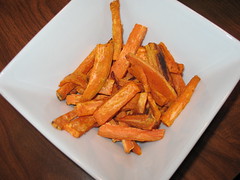Why ducks?
First I would like to mention I did not choose to raise ducklings. My original ducklings were a gift from my father on mother's day to add to my farm. They started as a joke which I thought was a large inconvenience but I have come to LOVE them! Here are a few facts as to why:
- Ducks are hardy, inexpensive and easy to care for
- They live up to 20 years
- They require minimal housing
- They do not require a pond or other body of water as commonly thought, only a small bucket to dip their heads in for preening
- Are disease resistant to fleas, ticks and parasites
- Are not smelly like chickens
Are very social (you must always keep ducks in pairs, not alone)- Are highly intelligent
- Ducks love greens and will keep your yard free of weeds
- They also LOVE snails and slugs

So I have convinced you ducks are lovely creatures, now how do you care for them?
Ducklings:
Housing: Protected from predators, weather. I used a cardboard box and then a larger plastic container. Should be well ventilated with lots of light. Keep clean ( I found I had to clean my box daily as the ducklings are messy little things.)
Bedding: Straw or Hay only. Wood chips and shavings can cause severe health issues. (They like to eat the wood shavings, bad for baby ducks!)
Feed: Always feed unmedicated feed. For the first two weeks after you get freshly hatched ducklings they should be fed duck starter, then for weeks 3-7 a duck grower, after they are 7 weeks they can eat the chicken pullet grower. Ducklings also require GRIT which helps them grind food up in their gizzards.
Water: They require a constant fresh supply AND a drowning proof container, never leave ducklings unattended near open water, they can and will drown.
Heat: The first week they need around 98 degrees Fahrenheit. Then decrease by 5 degrees per week until you reach 55 degrees. This is the perfect temp for adult ducks. Decrease the heat by slowly raising the heat lamp. You will know the heat is appropriate for the ducklings if they are moving around freely happily eating and drinking. It is too hot if they are spread as far away from the heat as they can get and too cold if they are huddled under it.
Adult Ducks:
Need protection from weather extremes, clean drinking water, company, adequate light to lay eggs. Are adorable cute and loyal!
Eggs:
Here is a link to a great chart of the nutritional value of duck eggs. Click here for the link.
My take away from the above link is the following pointers:
- Low in sugar
- High in iron
- High in phosphorus
- High in riboflavin
- Very high in selenium
- Very high in vitamin B12
Duck eggs are larger than chicken eggs. The white tends to be more gelatinous, and the yolks are a brighter yellow and larger. The shells are tougher, which gives them a longer shelf life than chicken eggs. " Scrambled or in omelets, duck eggs are well complemented by onions, peppers, mushrooms, or cheeses. Professional bakers are said to prefer duck eggs because of their rich yolks and because the baked goods have better texture and hold their shape better." Everything you do with a chicken egg can be done with a duck egg. Of note, the water content in duck eggs is lower so they are easier to overcook and can become rubbery.
Best Breeds for Egg Laying:
Runner Ducks
Khaki Campbell ( currently own)
Magpie (Currently Own)
Click here for more info on breeds
Best Breeds for Egg Laying:
Runner Ducks
Khaki Campbell ( currently own)
Magpie (Currently Own)
Click here for more info on breeds
References:


















































